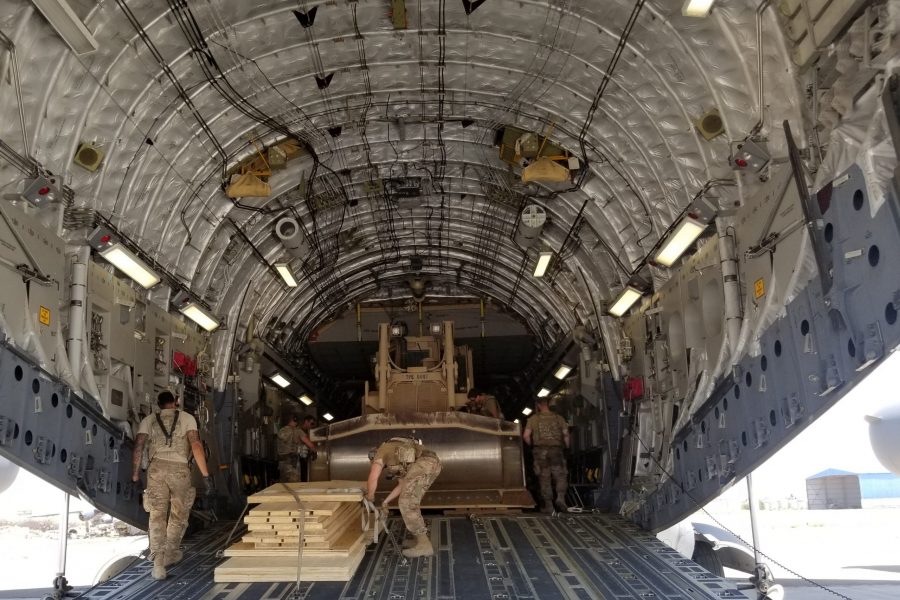As the coalition’s footprint in Iraq and Syria “diminishes,” international support for institutional changes, such as building a local judiciary and a military that can sustain itself, is necessary to ensure the Islamic State group does not return, the No. 2 commander of Combined Joint Task Force-Operation Inherent Resolve said.
United Kingdom Army Maj. Gen. Kevin Copsey, speaking during a virtual Middle East Institute event Nov. 30, said the “international political microscope” needs to stay focused on areas within Iraq and Syria where ISIS remains. The group still operates in rural areas such as the Euphrates River Valley and contested regions near Kurdistan, though it has shifted to “survival mode” and is focusing more on criminal activity.
Without continued international support, particularly NATO-led efforts on training and maintaining readiness, ISIS could return because of a continued ability to provide command and control and limited financing in these regions, Copsey said.
NATO Secretary General Jens Stoltenberg said the organization is “stepping up, enhancing our presence in Iraq to provide more support.” The U.S., however, is planning to withdraw about 500 troops from Iraq by Jan. 15, 2021, bringing the total American contingent to 2,500 personnel in the country, Acting Defense Secretary Christopher C. Miller has said.
“We need to prevent ISIS from returning,” Stoltenberg said on Nov. 30. “The best way of doing that is to enable the Iraqi security forces to be able to fight Daesh and to become stronger.”
NATO is focused on building the “right ability for the security apparatus to hand over to the judicial apparatus,” Copsey said. “That needs to go hand in hand with trying to resolve all the other security challenges the government faces, … of which all the OIR has done is deal with the symptoms. And that’s the key thing we need to get after, not the military anymore.”
Iraqi military forces are able to conduct day-to-day missions with limited coalition support outside of advising in operations centers. “They plan, they exploit any operation. …. So that momentum is there,” Copsey said. “There’s still probably work to do … but the day-to-day operations show strong momentum behind it that as we see the twilight of our mission out here I have no doubt that they have the abilities to keep on going.”
